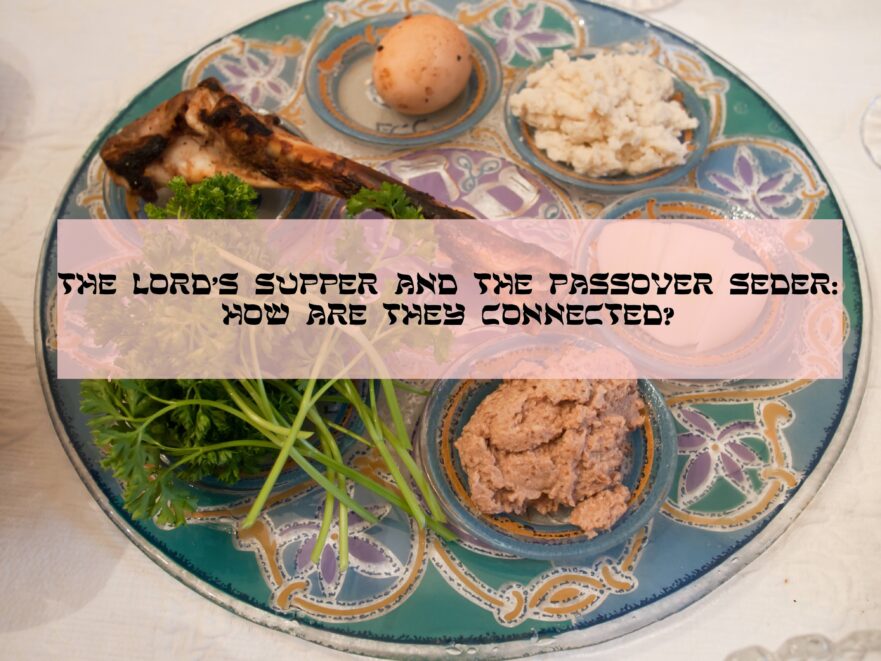The two elements of the Lord’s Supper (bread and wine) are those least distinctive to the Passover meal.
Tangled up in Techēlet: Tzitzit (Ritual Tassels) in the Time of Jesus
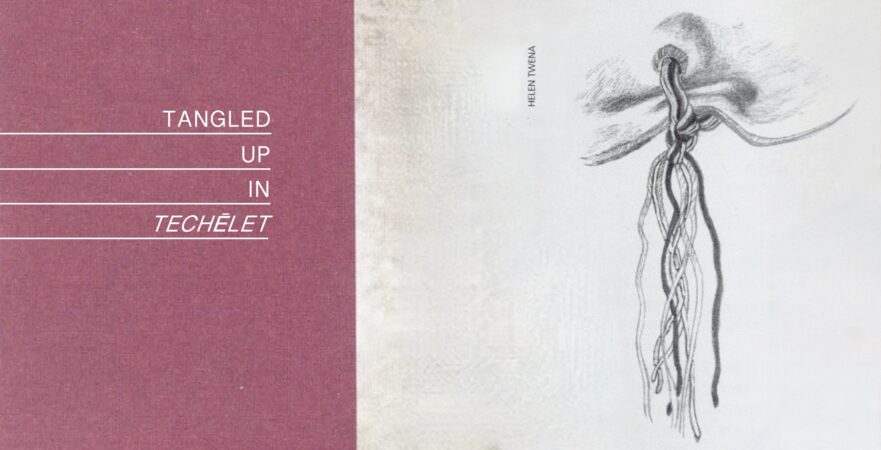
Although the wearing of tzitzit is enjoined in Scripture, we do not find records of its actual observance until the Second Temple period.
A Voice Crying
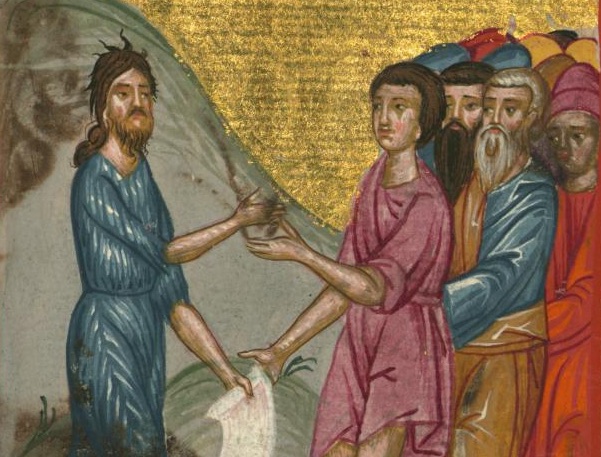
An examination of the Jewish setting of John the Baptist’s proclamation of an immersion of repentance for the release of Israel’s sin indebtedness.
The Mikveh and Ritual Immersion in Jesus’ Day
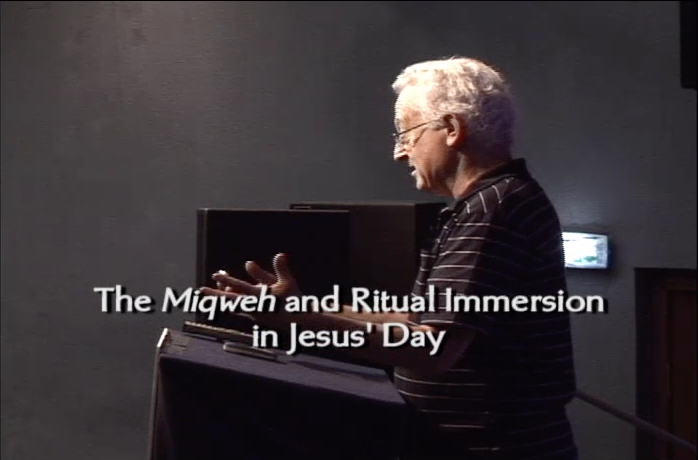
The complete 2006 lecture is now accessible to JP users. View now!
Sending the Twelve: Conduct in Town
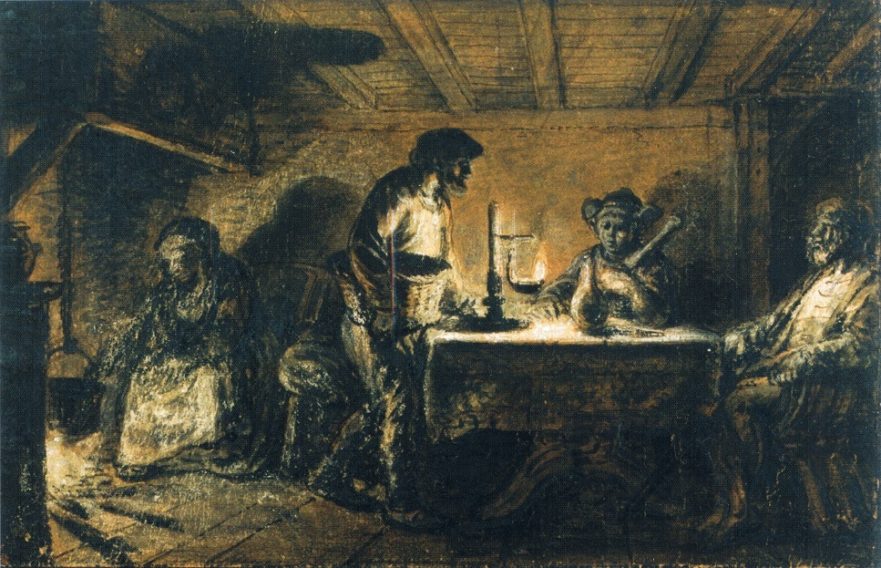
David N. Bivin and Joshua N. Tilton suggest a Hebrew reconstruction of Jesus’ instructions about how the twelve apostles were to behave when they entered a town. In this pericope we learn about the giving and receiving of hospitality among Jesus’ earliest followers. We also learn what may be wrong about the popular view that shaking the dust from the apostles’ feet was a symbolic action meant to signal to Jews who rejected Jesus that they were henceforth to be considered as Gentiles.
“Shake the Dust from Your Feet”: What Did the Apostles’ Action Signify?
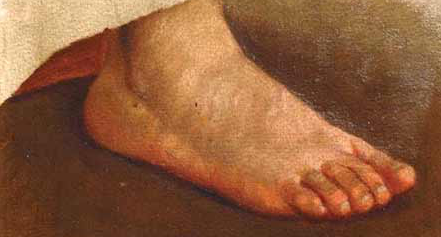
The standard interpretation of the apostles’ dust-shaking action proposes that Jesus turned the concept of the impurity of Gentile lands against the Jewish inhabitants of cities within the (ritually pure) land of Israel. This interpretation concludes that shaking the dust from their feet dramatically symbolized that Jesus’ apostles would henceforth regard the Jewish inhabitants of a city that had rejected their message as though they were cut off from Israel. It is time for this mistaken interpretation to finally be put to rest.
Feast of the Circumcision (New Year’s Day)
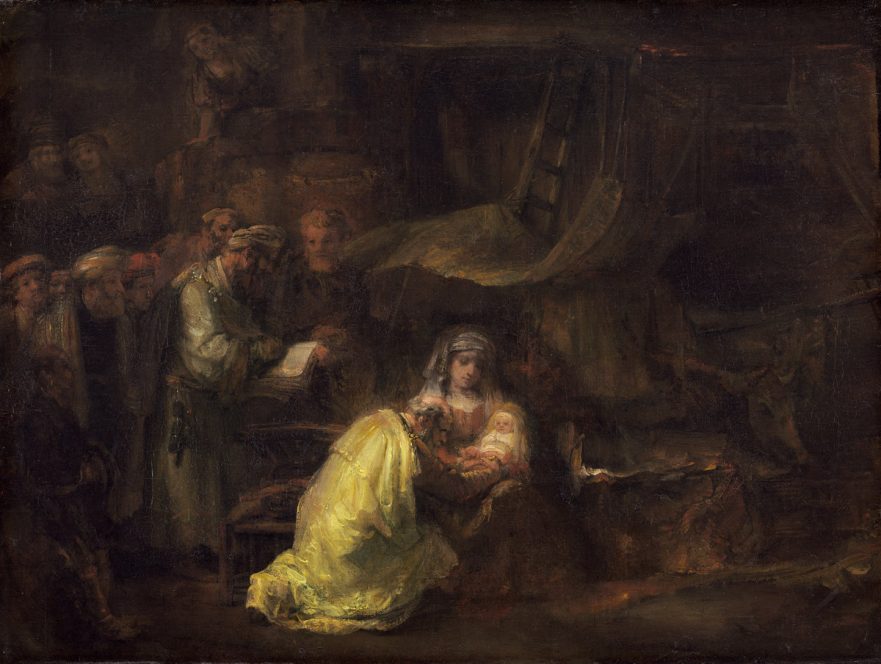
The first of January, celebrated around the world as New Year’s Day, is also the eighth day of Christmas and, as such, the Feast of the Circumcision and Naming of Jesus. Of course, no one knows on what day of the year Jesus was actually born, but since it has become traditional to celebrate Jesus’ birth on the 25th of December, it follows that the first of January is the day on which Christians celebrate the circumcision and naming of Jesus.
A Goy’s Guide to Ritual Purity

The concept of ritual purity is perhaps one of the most difficult concepts in the Bible for people to grasp today. Whereas in many “traditional” societies the concept of ritual purity was (and is) taken for granted in daily life, the whole framework for the concept of ritual purity is totally foreign to the secular western mindset.
And Where Did You Go for the Seder?
We are now in the middle of Passover week and one frequently hears the question, “And where did you go for the Seder [the special home service on the first night of Passover]?” Answers are varied: “To my family’s home.” “To friends.” “To a hotel in Eilat.”
The Apostolic Decree and the Noahide Commandments
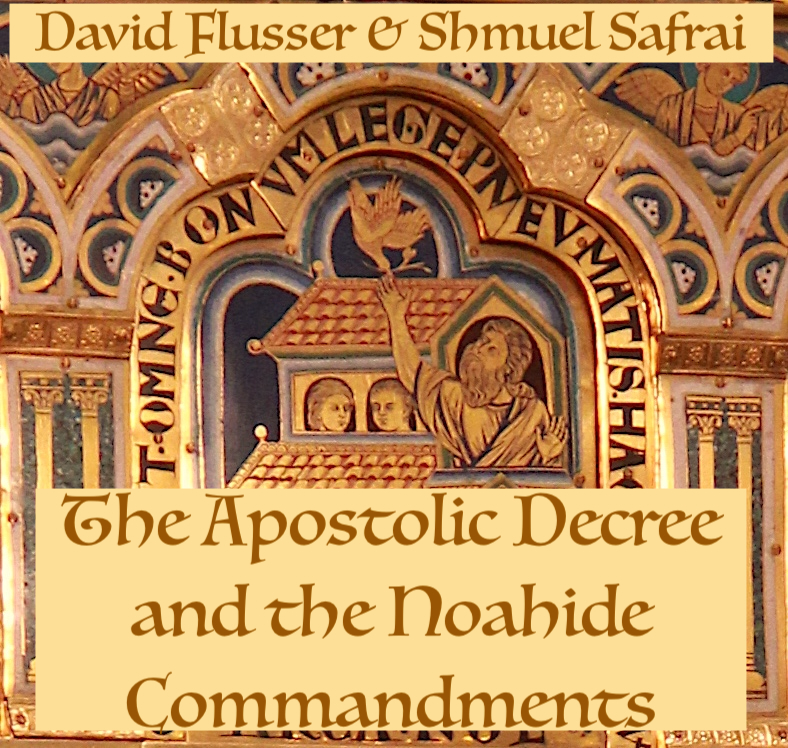
Jerusalem Perspective is pleased to make available to the English-speaking world this important article written originally in German by David Flusser and Shmuel Safrai: “Das Aposteldekret und die Noachitischen Gebote,” in Wer Tora mehrt, mehrt Leben: Festgabe fur Heinz Kremers (ed. E. Brocke and H.-J. Borkenings; Neukirchen-Vluyn, 1986), 173-192.
Seder with Family
A visitor to Israel last night might have been puzzled by seeing the streets heavy with traffic, especially since it was already one o’clock in the morning. The reason was that last night was the first night of the annual week-long Passover festival celebrating the Jewish exodus from Egypt thousands of years ago, and people were returning home after taking part in a Passover Seder (the ceremonial meal on the first night of Passover).
Were Women Segregated in the Ancient Synagogue?
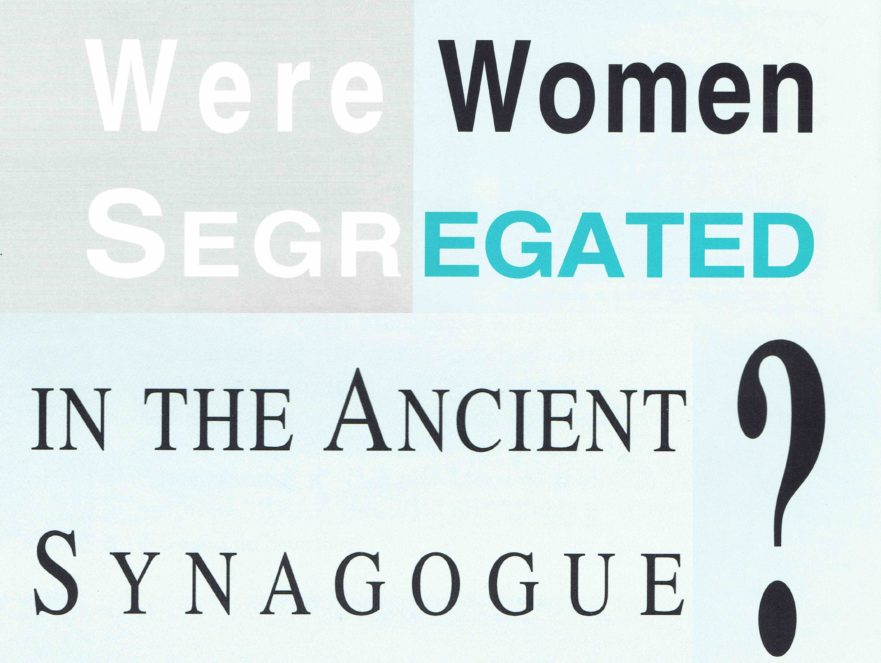
Did women play a passive role in the synagogue congregations of antiquity? Were they separated from male members of the congregation during prayer and study, as is the case today? According to Professor Shmuel Safrai, the answer to both questions is a resounding “No.”
Stewards of God’s Keys

Jesus gave his disciple Peter the “keys of the kingdom of heaven” and promised that whatever Peter “bound” and “loosed” on earth would be “bound” and “loosed” in heaven. What scriptural allusions lurk beneath these expressions and what are their implications? How does the Jewish literary background of Matthew 16:19 help us better appreciate Jesus’ words?
Jesus’ Devout Jewish Parents and Their Child Prodigy
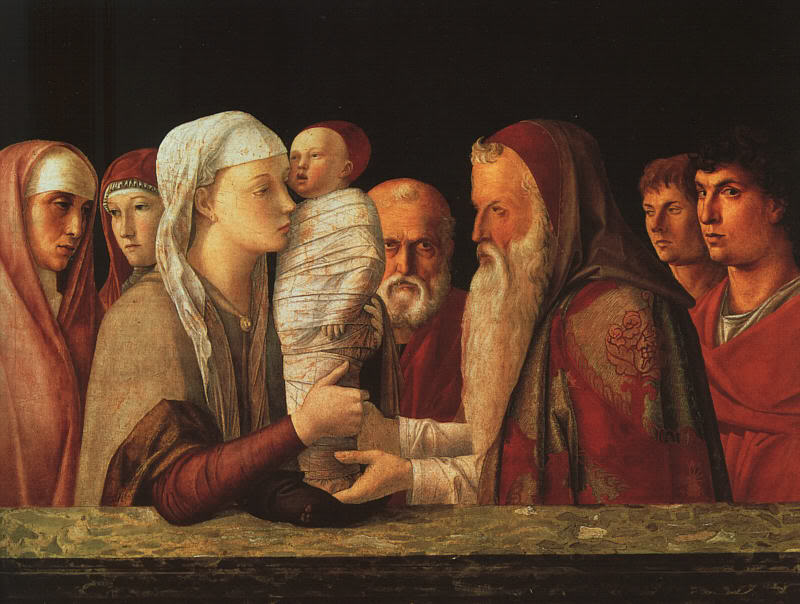
In the infancy narrative found in chapters one and two of Luke’s gospel, Luke has provided excellent character references for Mary, Joseph and Jesus. Jesus’ mother and father show piety far beyond the usual, and the young Jesus is eager to be in the temple studying Torah with the teachers of Israel.
Jewish Laws of Purity in Jesus’ Day
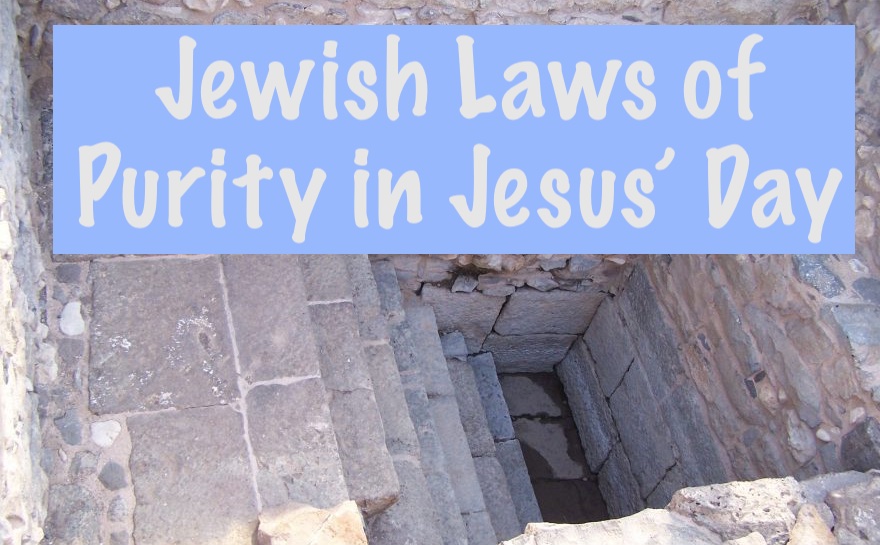
The sages were required to interpret the biblical commandments, including those dealing with ritual uncleanness of menstruants. Rabbinic regulations about impurity caused by menstruation form the background to several stories in the gospels.

